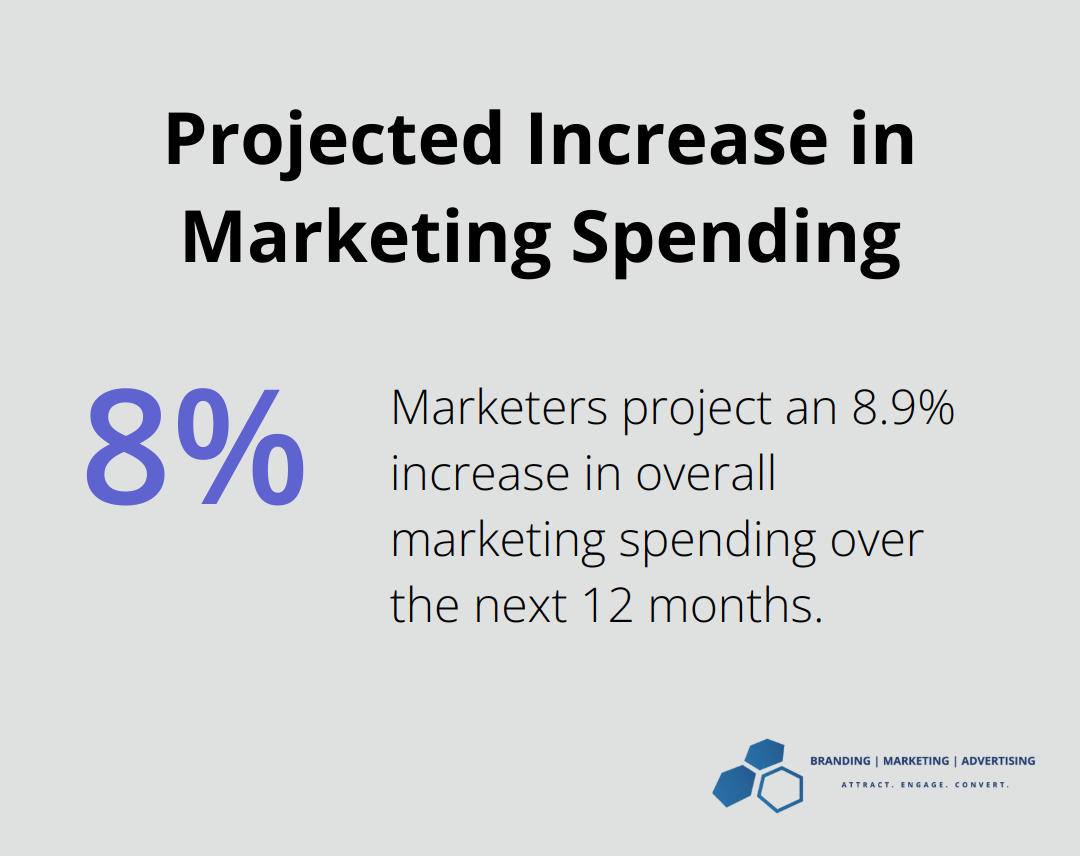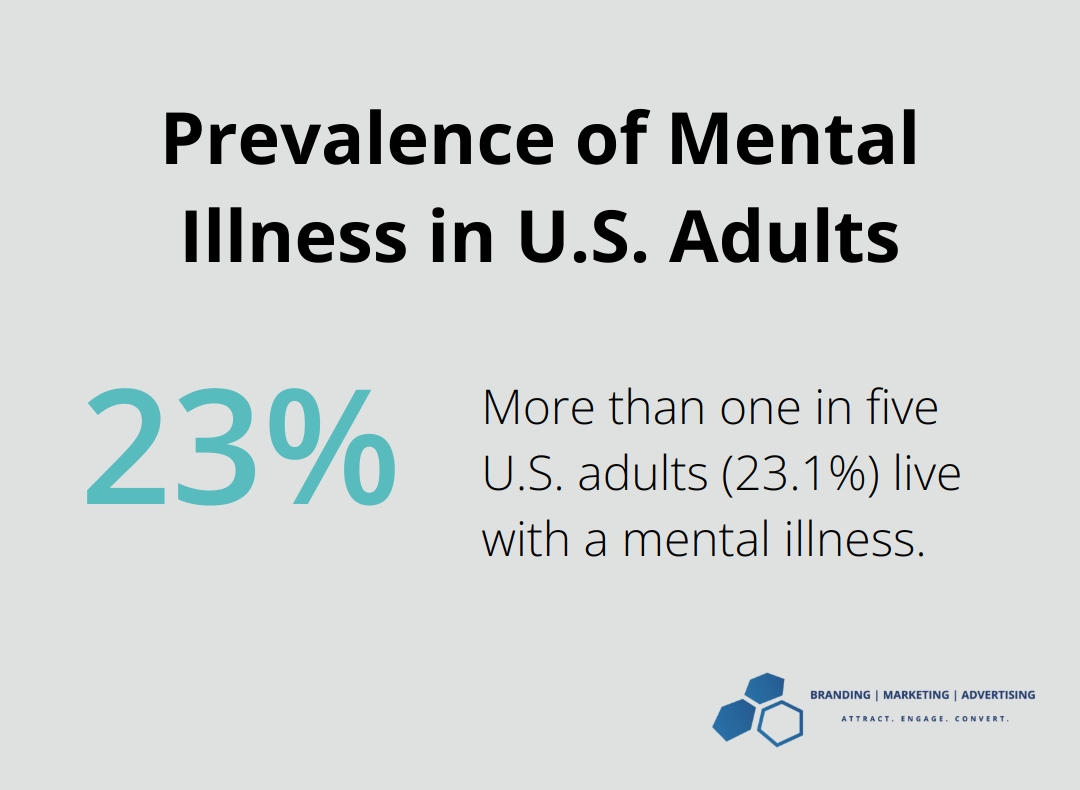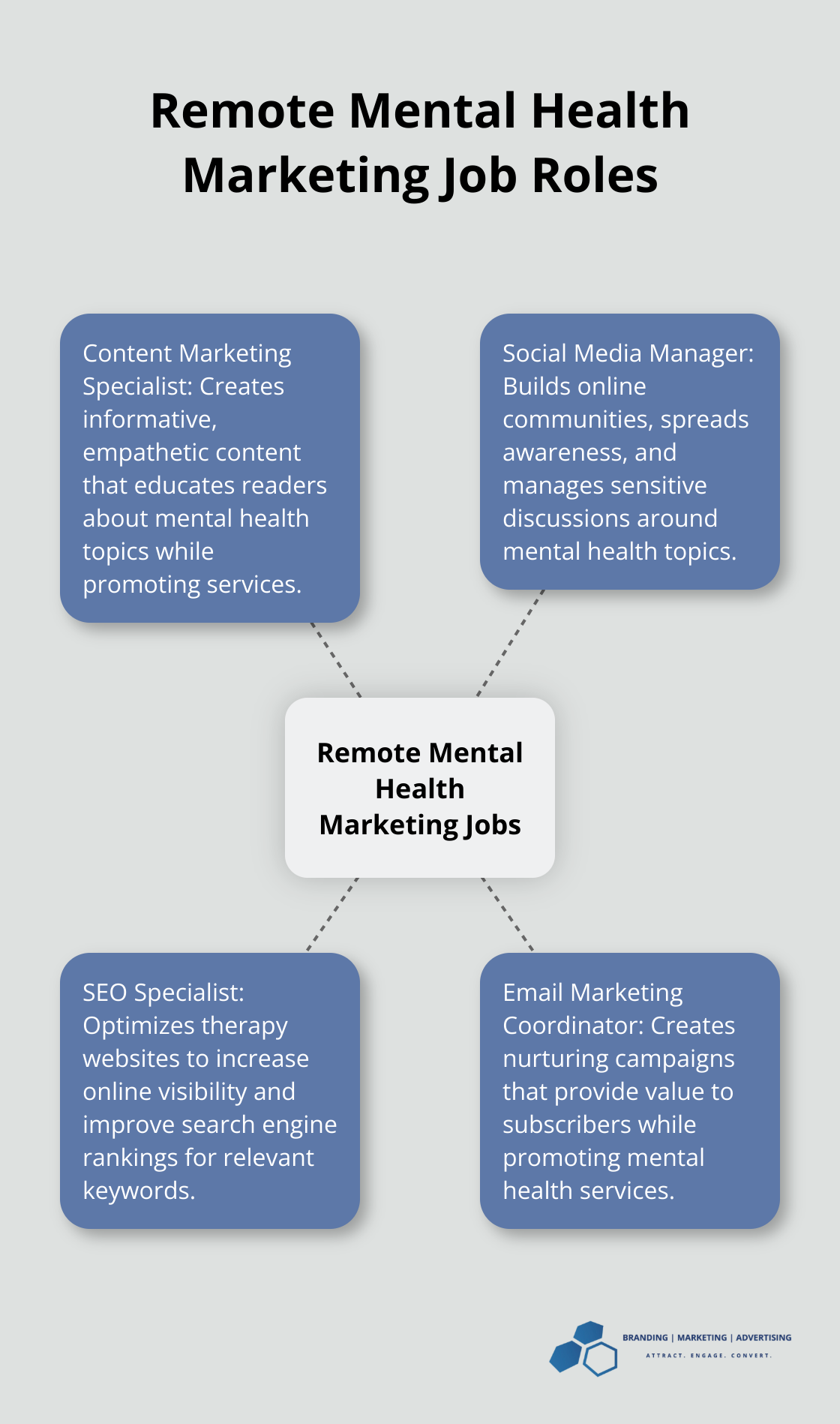Remote Mental Health Marketing Careers: Find Your Dream Job
At Branding | Marketing | Advertising, we’ve noticed a surge in mental health marketing jobs remote opportunities. The intersection of digital marketing and mental health services has created a new frontier for professionals seeking meaningful work from home.
This blog post explores the exciting career paths available in remote mental health marketing. We’ll cover the skills you need, the types of jobs you can find, and why this field is growing rapidly.
Why Mental Health Marketing Jobs Are Booming
The mental health sector experiences unprecedented growth, creating a surge in demand for skilled marketing professionals. This trend reshapes the industry, driven by several key factors.
Telehealth Revolution
Telehealth services transform the mental health landscape. A report reveals that while telehealth utilization has decreased from peak pandemic levels, it remains dramatically higher than pre-2020 baselines. This shift creates a need for marketers who can effectively promote online therapy services and digital mental health tools.
Mental Health Awareness
A notable increase in mental health awareness occurs globally. This heightened awareness leads more people to seek mental health services, creating a larger market for mental health providers (and consequently, a greater need for marketing expertise).
Digital Marketing in Healthcare
The healthcare sector (including mental health services) increasingly embraces digital marketing strategies. A survey found that marketers project overall marketing spending to increase by 8.9% over the next 12 months. This shift towards digital opens up numerous opportunities for marketers with expertise in SEO, content marketing, and social media management.

Remote Work Opportunities
The rise of remote work has significantly impacted the mental health marketing field. Companies now hire talented professionals regardless of their location, expanding the pool of available jobs and candidates. This trend allows marketers to work with mental health providers across different regions, bringing diverse perspectives to their campaigns.
Personalized Marketing Approaches
Mental health marketing increasingly focuses on personalized approaches. Marketers use data analytics and AI to create targeted campaigns that resonate with specific audience segments. This trend requires professionals who can combine marketing skills with an understanding of mental health issues and patient needs.
The convergence of these factors creates fertile ground for remote mental health marketing careers. As the industry evolves, professionals who can effectively communicate the value of mental health services in the digital space will remain in high demand. The next section will explore the essential skills and qualifications needed to thrive in this growing field.
<a href=”https://bestbma.com/how-to-create-a-successful-digital-marketing-strategy/”>How to Create a Successful Digital Marketing Strategy</a><a href=”https://bestbma.com/the-importance-of-seo-for-small-businesses/”>The Importance of SEO for Small Businesses</a><a href=”https://bestbma.com/social-media-marketing-tips-for-beginners/”>Social Media Marketing Tips for Beginners</a><a href=”https://bestbma.com/content-marketing-strategies-that-drive-results/”>Content Marketing Strategies That Drive Results</a>
Essential Skills for Remote Mental Health Marketing
Remote mental health marketing demands a unique skill set. Professionals in this field must combine mental health knowledge with digital marketing expertise to create effective campaigns.
Mental Health Literacy
A thorough understanding of mental health topics forms the foundation of successful marketing in this field. Marketers must know common mental health conditions, treatment approaches, and industry terminology. This knowledge enables the creation of accurate, sensitive content that connects with patients and healthcare providers alike.
The National Institute of Mental Health reports that more than one in five U.S. adults live with a mental illness (59.3 million in 2022; 23.1% of the U.S. adult population). Marketers who grasp these statistics (and their implications) can craft more impactful campaigns.

Digital Marketing Proficiency
Mastery of digital marketing techniques is non-negotiable in this field. This includes expertise in SEO, social media management, and content creation. A Deloitte survey found that marketers project overall marketing spending to increase by 8.9% in the coming year.
SEO skills prove particularly valuable in this sector. Well-optimized content can significantly boost visibility for mental health services (a fact we’ve observed firsthand at Branding | Marketing | Advertising).
Empathetic Communication
Strong communication skills, paired with empathy, are vital in mental health marketing. This sensitive topic requires messages that inform while showing compassion. Marketers must understand the patient journey and address concerns with care and respect.
Regulatory Compliance
Knowledge of healthcare regulations and ethics is essential for mental health marketers. They must navigate complex rules like HIPAA in the U.S. or GDPR in Europe. Non-compliance can result in severe penalties and reputational damage.
As the field of remote mental health marketing continues to evolve, these skills will become increasingly important. The next section will explore the various job roles available in this dynamic field, each requiring a unique combination of these essential skills.
<a href=”https://bestbma.com/how-to-create-a-successful-digital-marketing-strategy/”>How to Create a Successful Digital Marketing Strategy</a><a href=”https://bestbma.com/the-importance-of-seo-for-small-businesses/”>The Importance of SEO for Small Businesses</a><a href=”https://bestbma.com/social-media-marketing-tips-for-beginners/”>Social Media Marketing Tips for Beginners</a><a href=”https://bestbma.com/content-marketing-strategies-that-drive-results/”>Content Marketing Strategies That Drive Results</a>
Remote Mental Health Marketing Job Roles
The field of remote mental health marketing offers diverse career opportunities. The demand for specialized roles that blend mental health expertise with digital marketing skills continues to grow.

Content Marketing Specialist
Content marketing specialists in mental health create informative, empathetic content that resonates with individuals seeking mental health support. They produce blog posts, articles, and resources that educate readers about mental health topics while promoting services. These professionals must stay updated on mental health research and trends to produce accurate, relevant content.
A successful content marketer in this field might create a series of blog posts about anxiety management techniques (backed by recent studies and expert insights). They optimize this content for search engines, ensuring it reaches those actively seeking help.
Social Media Manager for Mental Health Platforms
Social media managers in the mental health sector play a key role in building online communities and spreading awareness. They create engaging posts, respond to comments with empathy, and manage sensitive discussions around mental health topics.
For instance, a social media manager might run a campaign for Mental Health Awareness Month, sharing daily tips, inspirational quotes, and resources across platforms like Instagram and Twitter. They also monitor conversations to ensure a safe, supportive environment for followers.
SEO Specialist for Therapy Websites
SEO specialists focusing on therapy websites help mental health professionals increase their online visibility. They optimize website content, improve site structure, and build quality backlinks to boost search engine rankings for relevant keywords.
An SEO specialist might conduct keyword research to identify terms like “online therapy for anxiety” or “depression counseling near me,” then optimize therapists’ websites to rank for these searches. They also ensure the website provides a user-friendly experience (which is important for retaining visitors seeking mental health support).
Email Marketing Coordinator for Mental Health Services
Email marketing coordinators in this field create nurturing campaigns that provide value to subscribers while promoting mental health services. They segment audiences, craft personalized content, and analyze engagement metrics to improve campaign effectiveness.
A typical task might involve creating a welcome series for new subscribers, offering free resources like stress management guides or meditation audio files. They then develop follow-up emails that gently introduce available therapy services or online courses.
Remote mental health marketing roles require a unique blend of marketing expertise and mental health knowledge. Professionals in these positions must stay updated on both marketing trends and mental health developments to create effective, sensitive campaigns that truly help those in need while maintaining a healthy work-life balance.
Final Thoughts
Remote mental health marketing jobs offer meaningful work in the digital space. Professionals can leverage their skills to increase mental health awareness and improve access to care. Success in this field requires continuous learning about digital marketing trends and mental health developments.
The rewards of this career extend beyond professional growth. Marketers contribute to reducing stigma and helping individuals access vital mental health resources. The work challenges professionals but provides deep fulfillment.
As demand for mental health services grows, skilled marketers become increasingly valuable. At Branding | Marketing | Advertising, we support businesses in the mental health sector with comprehensive digital marketing strategies. To learn more, visit our website.












